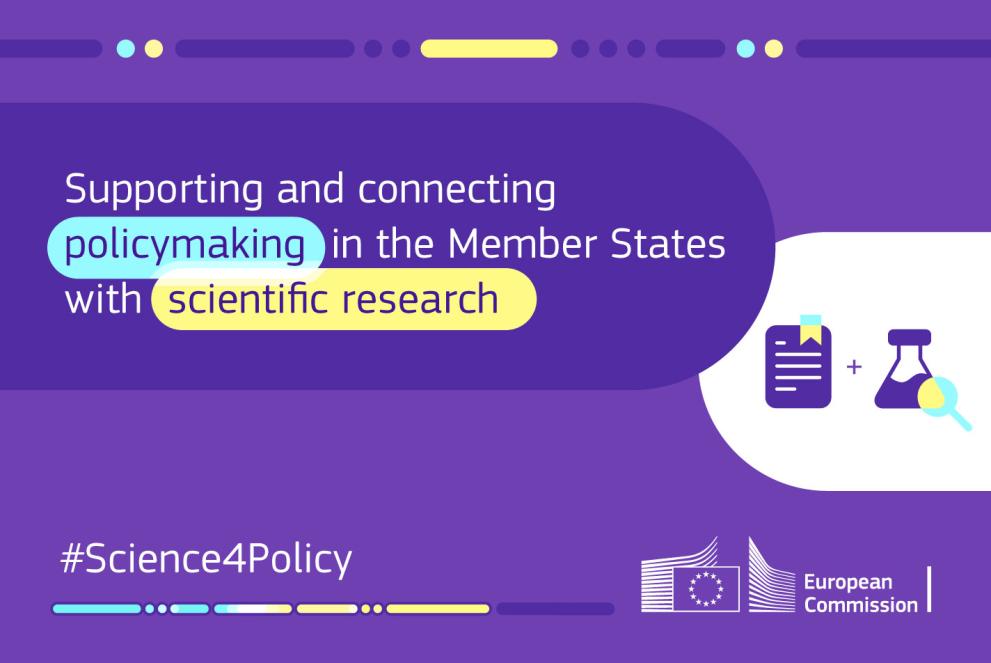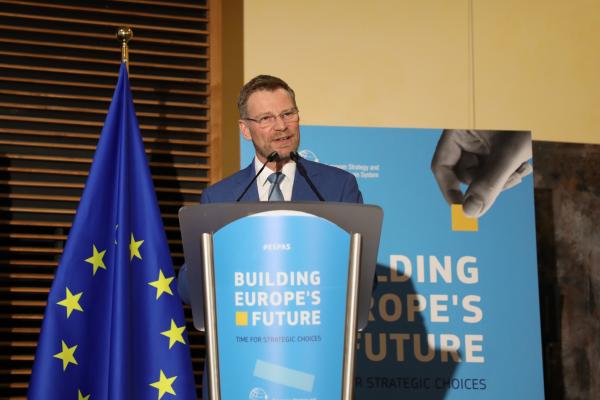
Policymakers, today, face complex issues, from global pandemics and geopolitical challenges, to energy and climate crises. Scientific knowledge can help them understand problems more accurately, and identify and assess policy options.
Nonetheless, connecting policymaking with scientific research is not an easy task. The scientific and policymaking communities operate in different worlds, with distinct cultures, values, incentives, languages, and time scales. This is why, to reap the full benefits of science for policy, stronger connections between scientists and policymakers, as well as more frequent and productive interactions, are needed.
To foster discussions on a better use of scientific evidence and expertise in policymaking within the Member States, the JRC and the Directorate-General for Research and Innovation (DG RTD), with the support of the Directorate-General for Structural Reform Support (DG REFORM), have developed a Commission Staff Working Document (SWD) on “Supporting and connecting policymaking in the Member States with scientific research”. This document identifies the rationale behind building capacity of science-for-policy ecosystems, as well as the challenges encountered at the science-policy interface, while highlighting good practices and available EU instruments in support of Member States’ capacity building in the field of science for policy.
The Staff Working Document as a compass for developing evidence-informed policymaking
The document is a first step to launch national and European debates about how to better connect the scientific and policymaking communities. It responds to existing initiatives both at the EU and national levels to support evidence-informed policymaking, from changes in research assessment and knowledge valorisation policies, to the increase of organisations within and near government that seek to mobilise and absorb scientific input for policymaking.
Scientific knowledge helps understand the problems, develop policy responses based on evidence, and evaluate the impact of policy measures. For instance, scientific modelling, combining the insights of epidemiology, virology, and mathematics, helped policymakers to foresee the spread of COVID-19, as well as timing the introduction and lifting of restrictions. Modelling helped policymakers to minimise the burden on health systems, to save lives, and the burden on the economy, to save jobs. But COVID-19 also tested the relations between scientific and policymaking communities and showed that more can be done. Scientific knowledge often does not reach the right policymakers in the right time, or in the right format. Likewise, policymakers may not always know how to use the input they receive.
The Commission’s document aims to stimulate discussions on connecting science with policymaking in EU Member States, setting out the rationale for science for policy, discussing common challenges, and introducing the EU support mechanisms. It also stresses that science for policy is a collective task that should involve all levels of governance and all scientific disciplines.
Building capacity for evidence-informed policymaking in governance and public administration
Evidence-informed policymaking requires building and connecting capacity for more effective engagement between scientists and policymakers, and enhanced policy coordination and cooperation between different government departments and levels. Well-designed evidence-informed policymaking systems require the existence of knowledge brokers and boundary organisations to create linkages between research and policymakers, as well as interconnected networks of ministerial science advisers, knowledge producers, and analytical units in government.
Yet, systems in place are often characterised by a fragmentation of actors and an opacity in the functioning of these science-to-policy networks. These issues are compounded by what are often insufficient resources for knowledge and evidence mobilisation and management in the public administration, and a lack of overall coordination and connection between the different components and actors of the system at large.
The JRC, together with the OECD, will be working for two years with seven Member States (Greece, Belgium, the Czech Republic, Estonia, Latvia, Lithuania, and the Netherlands), to build the capacity of participating Member States to improve the effectiveness of their public administrations in supplying and uptaking of scientific knowledge in policymaking. This project is supported by the Technical Support Instrument. The multi-country dimension of this project will serve as an opportunity for the beneficiaries to leverage lessons learned in partner countries and to benefit from mutual learning and exchange of practices.
Details
- Publication date
- 26 October 2022
- Author
- Joint Research Centre
- JRC portfolios




